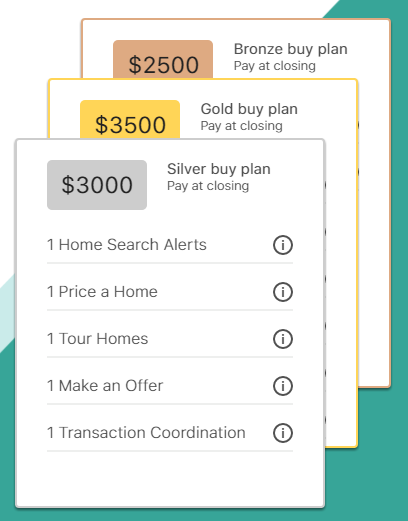GoldenKey, which was previously known as SoloPro, wants to change how real estate agents and their clients do business.
Typically, as a buyer or seller, you work with one agent, who then gets a 3 percent commission once you buy or sell your home. GoldenKey puts a different spin on this. Instead of a commission, you pay an agent a flat fee for the services you need and get a 3 percent rebate when you buy or sell a home with the help of one of the company’s partner agents (though some states like Oregon don’t allow for this rebate). That may not sound like a crazy idea, but in the rather conservative real estate world, that’s akin to a revolution.
After raising $1.1 million last June and then getting a strategic investment from Lowe’s later in the year, the company today announced that it has raised another $1.75 million from Lowe’s Ventures, NFX Guild and others. The company says that this brings its total investment to date to $3.4 million (which also means that the earlier Lowe’s investment was probably around $550,000).
The company plans to use this new investment to expand nationwide and to build out its toolset for its users.
 GoldenKey lets you either pick a pre-paid bundle of services or pick and choose what you need (say a home showing or an agent who can be around for your home inspection or, if you’re selling, an open house). On its website, it’s clearly steering users in the direction of the pre-paid packages, and GoldenKey founder and CEO Tommy Sowers told me that the company found that consumers prefer to pay at close and these plans allow them to do just that. “So it ‘feels’ like traditional real estate — you have an agent by your side — but you just don’t pay the massive commission,” he added.
GoldenKey lets you either pick a pre-paid bundle of services or pick and choose what you need (say a home showing or an agent who can be around for your home inspection or, if you’re selling, an open house). On its website, it’s clearly steering users in the direction of the pre-paid packages, and GoldenKey founder and CEO Tommy Sowers told me that the company found that consumers prefer to pay at close and these plans allow them to do just that. “So it ‘feels’ like traditional real estate — you have an agent by your side — but you just don’t pay the massive commission,” he added.
Another change the company made since its launch is that instead of having a wide-open marketplace that allowed agents to set their own prices, the new GoldenKey now offers set prices. That way, if you want to see a specific house at a set time, the service will simply send the request to a number of local agents and the first one to accept the request gets the job. “It gives the consumer an Uber-like experience and it gives agents what they typically don’t have — choice on when to work and when to get paid,” said Sower.
The company is currently working with about 1,900 agents in 47 states, so even though there’s likely some resistance to this model from many agents who are used to their large fees, there is clearly a supply of agents who want to work with the company. Sowers told me that the company now has agents in 53 percent of U.S. zip codes.
